Let's say you need a practical car but don't want it to be boring.
What are your options?
Assuming you want something affordable that gets decent gas mileage, too, your choices quickly start to narrow. When you ask for four doors, a stylish body and a big, SUV-like cargo area ... well, that's just about impossible.
But here are two cars that try to make it happen.
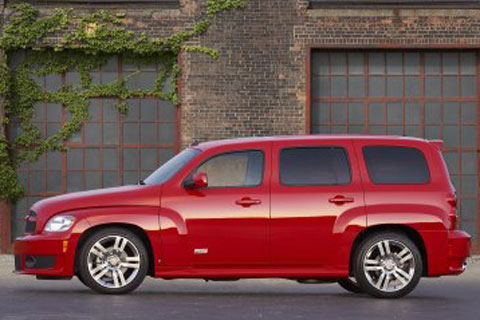
It's a blatant PT Cruiser knock-off.
Chevrolet HHR SS Turbo (2008)Chevrolet HHR
What Was Tested: 2008 Chevrolet HHR SS Turbo ($22,375).
Options: Limted slip differential ($495), side airbags ($395), audio upgrade ($295), XM Satellite Radio ($200).
Price as tested (including $620 destination charge): $24,380
Yes, in some ways this is nothing but a PT Cruiser copycat with its retro Little-Debbie-van styling, but it offers a lot more than the cool sheetmetal.
The HHR is the size of a compact car but feels bigger because of its high roofline and smart interior packaging. Big Bird would fit comfortably. It has a higher, more upright seating position than many cars -- it really feels more like a micro-SUV than a car -- and comes with enough storage space to haul the things you see in SUV commercials, like an eight-foot ladder, surfboard, skis and kayak.
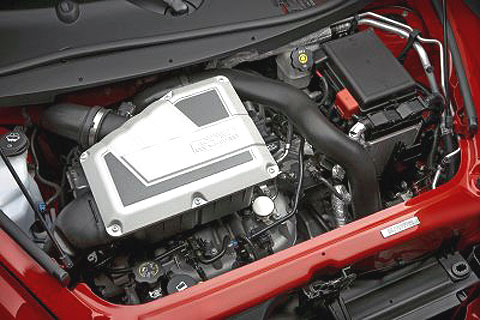
It comes with a 2.0-liter engine that makes 260 horsepower, a crazy-high amount for an otherwise dull, front-wheel-drive family car.
Chevrolet HHR SS Turbo (2008)Chances are nobody will actually carry any of that stuff in an HHR, but at least it has plenty of room for groceries.
While the base version starts around $16,500, I drove the high-performance HHR SS Turbo that cost more than $24,000. It comes with a 2.0-liter engine that makes 260 horsepower, a crazy-high amount for an otherwise dull, front-wheel-drive family car.
The SS also comes with a sportier suspension, more aerodynamic styling and an amazing traction control system with launch control. Basically, this is a car designed for drag races.
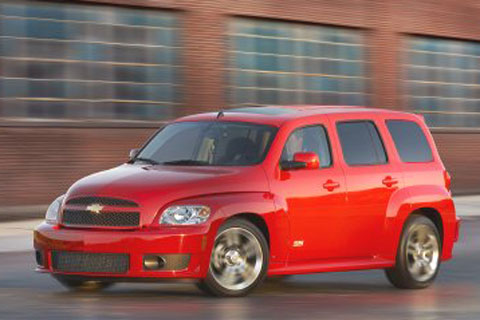
It really feels more like a micro-SUV than a car.
Chevrolet HHR SS Turbo (2008)Whether you opt for the vanilla HHR or the Tabasco SS Turbo, you'll be driving a car that's a fun and unconventional take on ordinary family transportation.
Pros: It's an efficient, affordable family car with a versatile interior and retro styling.
Cons: It's a blatant PT Cruiser knock-off.
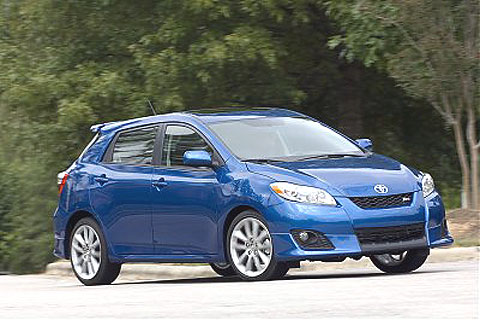
Like the HHR, the Matrix is actually a compact car built to look like an SUV.
Toyota Matrix (2009)Toyota Matrix
What Was Tested: 2009 Toyota Corolla Matrix XRS ($21,850).
Options: All-weather package ($150), navigation system ($1,300), power tilt moonroof ($890), floor mats ($199).
Price as tested (including $660 destination charge): $25,049
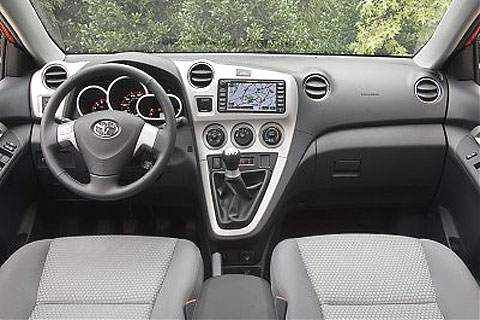
It doesn't seem quite as high quality as most other Toyota products.
Toyota Matrix (2009)Most Toyotas seem to be built to withstand a round of the Ultimate Fighting Championship being held in the cabin. You could take two 300-pound fighters, lock them inside for an hour while they bloody each other's noses, then let them back out to discover nothing whatsoever had been broken in the car.
Notice I said "most Toyotas." Not this one.
While the all-new 2009 Matrix -- a plumped-up version of the Corolla -- has a lot of nice features, it doesn't have Toyota's typical built-to-last-forever feeling. The doors close with a hollow "thwank." The dash is made from dollar-store plastic.
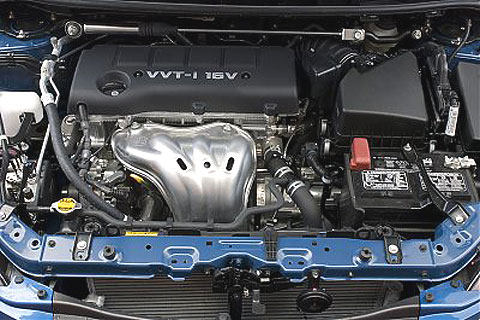
It's efficient, getting 32 mpg on the highway and 26 in town with its 1.8-liter engine.
Toyota Matrix (2009)That said, the new Matrix offers a lot of advantages over the old one and plenty of reasons to like it. It's efficient, getting 32 mpg on the highway and 26 in town with its 1.8-liter engine. It has a quiet, smooth ride. And it looks good with a clean, streamlined body that seems more athletic than the old Matrix.
Like the HHR, the Matrix is actually a compact car built to look like an SUV. As such, it has the light, maneuverable driving feel of a car with the versatile interior of a small SUV, including a nice size cargo area behind the back seat.
The Matrix starts around $16,000, but you can also get more luxurious features in the mid-$20,000 range like a navigation system and leather seats.
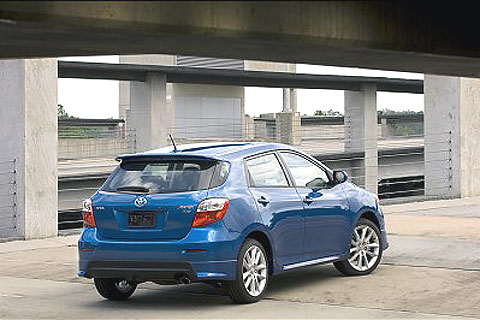
It has a quiet, smooth ride.
Toyota Matrix (2009)You can get this same car as a Pontiac called the Vibe, which has a slightly different body and interior. Depending on what options you want, you may be able to save money by getting the Pontiac version, but -- based on brand reputation alone -- the Matrix is likely to have better resale value than the Vibe.
Pros: It has the Toyota reputation for quality, lots of cargo space and good gas mileage.
Cons: It doesn't seem quite as high quality as most other Toyota products.




